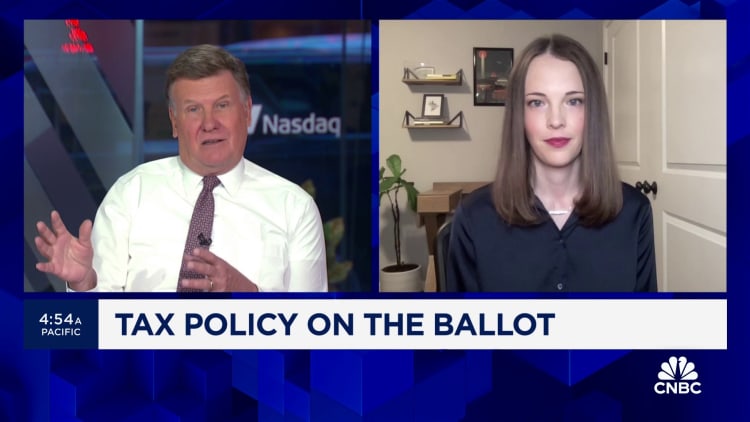Senior lawmakers on Tuesday announced a $78 billion bipartisan tax agreement — including retroactive boosts to the child tax credit that could affect families filing this season. But the proposed legislation could still face hurdles, experts say.
Retroactive to 2023, the plan would expand the child tax credit by broadening access, increasing the refundable credit and adding future inflation adjustments, according to an outline released Tuesday by House Ways and Means Committee Chairman Jason Smith, R-Mo., and Senate Finance Committee Chairman Ron Wyden, D-Ore. The proposal also restores expired business tax breaks.
"My goal remains to get this passed in time for families and businesses to benefit in this upcoming tax filing season, and I'm going to pull out all the stops to get that done," Wyden said in a statement.
More from Personal Finance:
IRS: Taxpayers may avoid a surprise tax bill with a quarterly payment by Jan. 16
Here are 3 ways Gen Zers can build credit before renting their own place
This beach city is helping older adults achieve their wish to age in place
How much the credit could be worth for families
While less generous than the enhanced child tax credit enacted during the Covid-19 pandemic, the changes would boost the maximum refundable tax break to $1,800 per child for 2023, up from the current 2023 limit of $1,600. The limit would increase to $1,900 for tax year 2024, and $2,000 for tax year 2025, along with inflation adjustments.
The new law would expand refundable credit eligibility for larger families and if income drops in 2024 or 2025, taxpayers can use earnings from the prior year to calculate their maximum credit.
"It's extremely well-targeted to provide significant relief to millions of low-income families," said Chuck Marr, vice president for federal tax policy for the Center on Budget and Policy Priorities.
If enacted, the proposed legislation could benefit roughly 16 million children in low-income families during its first year, according to a projection released Tuesday from the Center on Budget and Policy Priorities.
Childhood poverty more than doubled in the U.S. in 2022 — surging to 12.4% compared to 5.2% in 2021 — after pandemic relief expired.
'Not much time in a best-case scenario'
With proposed retroactive changes for 2023, there's pressure to enact the legislation by the opening of tax season on Jan. 29. "But there's not much time in a best-case scenario," said Garrett Watson, senior policy analyst and modeling manager at the Tax Foundation.
There are limited vehicles to pass the legislation and passing a stand-alone bill could be more challenging amid other priorities. "That's the big risk here — this ends up taking a backseat or dying to other concerns," Watson said.
Lawmakers are facing two fiscal-year 2024 deadlines to pass spending bills to avoid a partial government shutdown, with the first quickly approaching on Jan. 19.

Don't miss these stories from CNBC PRO:
- Tesla versus BYD: Analysts prefer one of them — giving it up to over 70% upside
- Goldman says small caps to beat large caps this year. 10 cheap smaller stocks to buy
- DoubleLine's Gundlach sees 'very painful' economic downturn, S&P 500 may be forming 'double top'
- 'One of the best valuations for AI': Buy the dip in this Big Tech stock, strategist says





